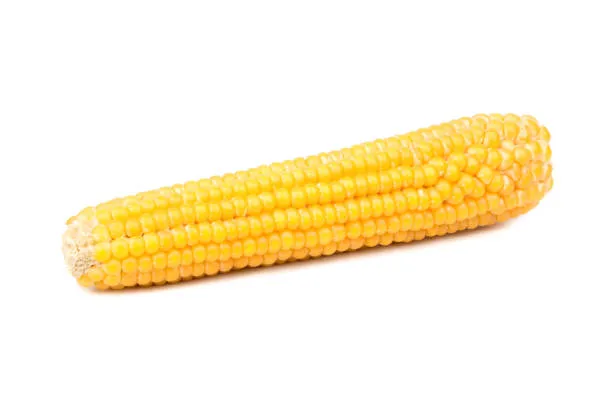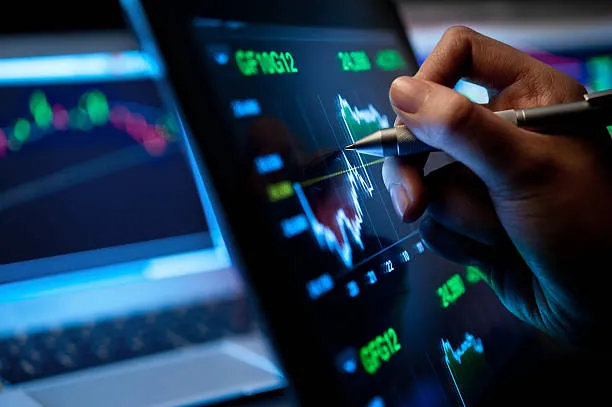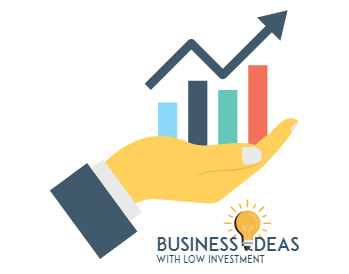The article is a discussion of the what is commodity market, which is one of the many ways to invest in commodities – investing in a particular good or item and selling it in the market.
This article discusses how research, planning, and time management are some of the main difficulties when buying and selling in commodities.
What Is the Commodity Market?

A commodity market is a market where commodities are traded. Commodities can be anything from food to oil. The most common commodities on the markets are grains, oil, and metals.
- A commodity market is a financial market where assets, such as grains, oil, and metals, are traded to extract prices that reflect their underlying economic value.
- A commodity market is typically smaller than a stock or bond market and it is less liquid.
- A commodity market is a place where soft commodities, such as oil, gold, and silver, are traded. These markets allow buyers and sellers to buy and sell these commodities without having to worry about the currency exchange rate.
- A commodity market is a place where people can buy, sell, and trade different commodities.
Commodities are items that are used for international trade or commerce, and they can be physical objects like oil or gold or virtual objects like bitcoin. People who trade commodities use them to make money.
A commodity market is a market where commodities are traded. These can be things like food, oil, metals, and other goods. These markets can be used to buy and sell these commodities.
As you may know, commodities are materials that are used to produce other goods and services. In a sense, they serve as the building blocks of the global economy.
And, as with any complex system, there are a number of key players and dynamics at work. This article will take a closer look at what goes on in commodity fund markets.
As we’ll see, these markets can be quite complex and volatile. But, they play an essential role in the global economy – and it’s worth understanding what’s going on behind the scenes.
So, what is a commodity market? Simply put, it’s a marketplace where goods and services related to commodities are traded.
The most common examples include crude oil, silver, copper, and gold. commodity sector markets can be found worldwide, but they tend to be concentrated in certain regions (for example, Asia).
Commodity markets are typically quite volatile – this is because they’re closely related to the worldwide supply and demand for these materials.
As such, changes in demand or supply can often lead to big fluctuations in physical commodity prices.
In general, commodity markets offer individual investors (and others) service an opportunity to profit from fluctuations
What is an example of a commodity market?

Commodity markets are typically markets where energy commodities, such as oil, metals, and agricultural products are traded. This can include physical markets as well as derivative markets.
An example of a commodity market is the stock market.
A commodity market is a market where commodities are traded.
Commodity markets are markets where agricultural, energy, precious metals, and oil are bought and sold.
Commodity markets are markets where commodities are traded. These can be things like oil, natural gas, wheat, gold, silver, and more.
They’re used to buying and selling products that have intrinsic value, like precious metal or foodstuffs. Commodity markets can be used for a variety of purposes, like price discovery or hedging.
Commodity markets are markets in which commodities such as oil, wheat, and gold are bought and sold.
A commodity market is a market where commodities are traded. Commodities can include food, oil, metals, and other goods.
An example of a commodity market is the spot market for oil. In this market, buyers and sellers negotiate a price for a particular quantity of oil.
The spot market is a very liquid market, meaning that prices change rapidly and are usually fairly accurate.
Here are some basic examples of commodity market
- Spot oil: This is the market where buyers and sellers agree to a price for oil at the present time.
- Forward Oil: In this market, buyers and sellers agree to buy or sell oil in 30 days at a particular price.
- Forward Wheat: This is the market where buyers and sellers agree to buy or sell wheat in 30 days at a particular price.
- Forward Crude Oil: In this market, buyers and sellers agree to buy or sell crude oil in 30 days at a particular price.
- Forward Natural Gas: In this market, buyers and sellers agree to buy or sell natural gas in 30 days at a particular price.
- Forward Dated Contracts: This also is a spot market where buyers and sellers agree to buy or sell a specific commodity in 30 days at a particular price.
- Forward Cash Oil: Also called forward-dated futures, this international market allows futures traders to make sure they are certain of their future position before buying the underlying commodity.
How Does Commodities Market Work?
The commodity market is a global market for buying and selling goods that are used as inputs in the production of other goods.
There are three types of markets in which commodities can trade: physical, financial, and derivative markets.
Physical markets are where buyers and sellers come together to negotiate a trade directly.
Financial markets are where traders buy and sell futures contracts and options to speculate on price movements.
Derivative markets allow traders to make bets on the price movements of underlying commodities.
Here are some points about how do commodities market work
- Commodities are the raw materials of manufacturing and hence the demand for them has a direct impact on economic growth.
- A commodities market is where buyers and sellers meet to exchange commodities, especially when they are used as inputs to the production of other goods. The price discovery process occurs in this market.
- A commodity market is not just buying or selling but also clearing and settlement activities.
- Financial intermediaries are involved in the commodity market. These are banks, investment firms, insurance companies, etc.
- Commodities are traded on commodities exchanges and are in larger quantities than stocks and bonds. Commodity exchanges are major securities trading venues
- The physical market of commodities consists of the buyers and sellers in the market, both of whom are institutional or non-institutional.
- The futures exchange market for a commodity has a minimum of 15 participants to be considered organized exchanges
- A high volume in commodity exchange, as compared to the futures market implies that there are more participants involved
- A large number of participants involves greater trading volumes and hence more price discovery
What Is Commodity Trading?
The world of commodity trading is a vast and complex one, full of different strategies and techniques that can be used to make money.
This guide will provide you with the basics of how to trade commodities, from finding the right market to set up your trading account.
When choosing a commodity to trade, it is important to first identify what you are looking for.
Some common commodities include crude oil, gold and silver, agricultural products, and coffee beans.
Once you have identified the commodity you are interested in, it is important to find a reliable source for prices and information.
There are many online resources available that will provide you with current prices and information on specific markets.
Once you have gathered information about the market and identified the commodity you are interested in trading, it is time to set up your trading account.
Commodity exchanges offer different trading tools and features that can make trading more efficient.
Some exchanges offer live streaming of markets so that users can track prices in real-time. Other exchanges offer user-friendly platforms that make it easy to enter orders and monitor results.
It is important to research all of the available exchanges so that you can find the best one for your needs.
Here are some tips on how to trade commodities
- Know the different types of trading
- Understand the functions of a commodity exchange
- Choose a reliable broker
- Have the knowledge of what you are buying and selling
- Become a financier as well as a trader and make sure you know both
- Hire a legal representative and do your research
- Set up a trading plan and stick to it
- Avoid taking risks with your money
- Track your trades
- Profit from the winning trade
- Have faith in yourself
- Decide whether or not you want to be a commodity trader
- Take the time to prepare yourself
What are the 3 types of commodities?
Commodities are items that are used to produce other items. They can be natural resources like oil, or they can be manufactured products.
Commodities are traded on commodity markets. These markets are used to buy and sell commodities. They can also be used to hedge against price changes in other markets.
There are three main types of commodities: primary commodities, secondary commodities, and derivatives.
1. Primary Commodities
- Primary commodities are those that are produced by nature. Examples include petroleum, cotton, wheat, copper, and aluminum.
- Primary commodities are materials that are used to make other products. Examples of primary commodities include gold, copper, and lumber. Commodities such as wheat or coffee help support farmers in poor countries.
- They also allow farmers to earn a living by producing the raw materials they need.
2. Secondary Commodities
- Secondary commodities are goods that are produced using primary commodities. For example, if you bought cotton at a farm store, then you would buy cloth made out of cotton.
- This type of production allows people around the world to use raw materials that they cannot grow themselves. It helps improve economic development.
- Secondary Commodities are often made from primary commodities. An example of a secondary product would be refined petroleum. Refined petroleum has become an essential component of modern life.
- it is used in cars, trucks, airplanes, lawn mowers, hair dryers, refrigerators, air conditioning systems, and more.
- Secondary Commodities are produced using primary resources as raw materials. Examples of secondary commodities include fuels such as oil and natural gas, foods like beans and corn, or industrial metals like aluminum or scrap metal. The demand for these goods drives prices.
3. Derivatives
- Derivatives are financial instruments based on commodity futures contracts. They take in assets like stocks, bonds, and currencies.
- Derivatives are financial instruments. Some examples of derivative products are futures contracts and options.
- Futures contracts are bets on the future value of a commodity. For instance, if there is a large increase in demand for a particular type of gasoline, suppliers may try to keep supplies low and raise gas prices.
- If the supply remains stable, then the price of gasoline may fall, which is known as downward speculation.
- By contrast, upward speculation occurs when speculators anticipate a decrease in fuel demand and expect the price of gasoline to rise accordingly. Similarly, options are bets on the future movement of a price.
- Derivatives contracts are financial products that use something else as their underlying liquid asset. For example, futures contracts are based on the value of agricultural crops or currencies.
- The last category is derivatives, which can be used to hedge against price changes in differ
- Derivatives play an important role in the market for energy trading because they enable traders to take a position when prices drop and then close out their position at another set price.
Should You Invest in Commodities?
Commodities are a great way to invest in the short term, but they can also be risky. Before you invest in commodities, make sure you understand the risks involved.
commodity investments are a great way to diversify your portfolio and generate consistent returns, but there are a few things you should keep in mind before jumping in.
First and foremost, commodities are not guaranteed investments. They may go up or down in value, and there is no guarantee that you will make any money from them.
Secondly, commodities can be risky because they are volatile and tend to be subject to price fluctuations. If you aren’t comfortable with the risk involved, then it might not be a good idea to invest in commodities.
Finally, commodities should only be a small part of your overall investment portfolio. Putting all of your eggs in one basket can lead to disastrous consequences if the market goes wrong.
By investing in commodities and other types of assets, you can create a more diversified and secure portfolio that will provide you with better long-term returns.
A lot of people are wondering if it’s a good idea to invest in commodities, such as oil, gold, and silver. After all, prices for these assets have been volatile in recent years.
Many people are wondering if it is worth investing in commodities such as oil, gold, and silver.
The answer to this question largely depends on your personal financial situation and what you believe the future holds for commodities.
If you think that prices will continue to rise then it may be a good idea to invest in these products. However, if you anticipate a decrease in prices then it may not be worth your time to invest.
Before making a decision, it is important to do your own research and consult with a financial advisor.
What Do Commodities Traders Do?
In the world of commodities trading, there are many different types of traders. Some traders specialize in a particular type of commodities, such as oil or gold. Others trade a number of different commodities, and some even trade futures contracts.
Whatever your specialization may be, one thing is clear: Commodity traders are always on the lookout for opportunities to make money.
Here are six ways they do it.
1. They Invest in Raw Materials
- Some commodity traders invest in raw materials like oil, coal, or agricultural products.
- They hope to buy these materials at a lower price and then sell them at a higher price later on.
- This can be an extremely profitable strategy if the commodity market is doing well.
2. They Play the Price Trend
- Some traders focus on the long-term price trend instead of just the short-term price changes.
- If they see that the price of a particular commodity is consistently going up or down, they may decide to buy or sell shares based on that trend.
- This can also be a profitable strategy if the market is doing well overall.
3. They Trade Spot Markets
- Some commodity traders also focus on spot markets – markets where commodities are bought and sold right away.
- If they see that a commodity is going up quickly and they want to buy as much as possible, they may drive to the trading floor and buy as many shares of that commodity as they can afford.
- This is also a profitable strategy if the market is doing well overall.
4. They Check Their Results Each Day
- Some commodity traders keep track of the markets every day in order to predict future prices before they happen.
- If they see that a particular space commodity is going up soon,
- For example, they may decide to place an order for troy ounces of that commodity before the market is even open.
5. They Trade During Quiet Times
- Some traders use strict rules to decide when they will trade and when they will not trade.
- They may only make a full-time living if they trade during high volume trading days, and sometimes only during those times.
6. They Get Help From Professionals
- Some traders in the commodities market are experienced enough to do it on their own, but many are not.
- The best way to profit from commodities is by working with other traders who can help you get the most out of your investments.
- This is also a good way for traders to learn from professionals in order to improve their skillsets and avoid making costly mistakes due to inexperience.
FAQ {Frequently Asked Question}
What is commodity market?
The article is a discussion of the commodity market, which is one of the many ways to invest in commodities – investing in a particular good or item and selling it in the market.
This article discusses how research, planning, and time management are some of the main difficulties when buying and selling in commodities.
What Is the Commodity Market?
A commodity market is a market where commodities are traded. Commodities can be anything from food to oil. The most common commodities on the markets are grains, oil, and metals.
A commodity market is a financial market where assets, such as grains, oil, and metals, are traded to extract prices that reflect their underlying economic value.
A commodity market is typically smaller than a stock or bond market and it is less liquid.
A commodity market is a place where soft commodities, such as oil, gold, and silver, are traded. These markets allow buyers and sellers to buy and sell these commodities without having to worry about the currency exchange rate.
What is an example of a commodity market?
Commodity markets are typically markets where energy commodities, such as oil, metals, and agricultural products are traded. This can include physical markets as well as derivative markets.
An example of a commodity market is the stock market.
A commodity market is a market where commodities are traded.
Commodity markets are markets where agricultural, energy, precious metals, and oil are bought and sold.
Commodity markets are markets where commodities are traded. These can be things like oil, natural gas, wheat, gold, silver, and more.
They’re used to buying and selling products that have intrinsic value, like precious metal or foodstuffs. Commodity markets can be used for a variety of purposes, like price discovery or hedging.
How Does Commodities Market Work?
The commodity market is a global market for buying and selling goods that are used as inputs in the production of other goods.
There are three types of markets in which commodities can trade: physical, financial, and derivative markets.
Physical markets are where buyers and sellers come together to negotiate a trade directly.
Financial markets are where traders buy and sell future contract and options to speculate on price movements.
Derivative markets allow traders to make bets on the price movements of underlying commodities.
Related Term
- How to Write Business Plan?
- What is Finance Management?
- Finance Wheels And Tires
- Who Biomedical Waste Management?
- How do management buyouts work?
- What Are Business Management Jobs?
- What is Yield Management in Front Office?
- What is Management Quota in Mbbs?
- What is Financial Strategy | Financial Management
- Who is the principal federal official for domestic incident management?
- Which Resource Management Task Deploys or Activates Personnel And Resources
- Which Type of Business Is Strong Steel Manufacturers & Structural Steel
- How To Start Mustard Oil Business Plan
- What Is B2k Marketing | B2k Media Marketing?
- What Is B2k Marketing | B2k Media Marketing?
- What Type of Agreement Is Used To Form A Partnership Business Partnership Agreement?
- How Can The Extensibility of A Platform Benefit a Business?
- What are Finance Charges?
- What is Business Facebook Manager?
- The primary focus of strategic management is
- Why Knowledge Management is Important?
- Management is What a Manager Does?
- Which Helps Enable An Oligopoly To Form Within A Market?
- What is Undifferentiated Marketing | Undifferentiated Marketing Strategy?
- How To Use Rural Marketing Strategies To Increase Your Business Growth
- International Marketing Research
- Features Of International Marketing
- Functions of Marketing
- Scope of Marketing Research
- What do you understand by Surrogate Marketing
- Marketing Fundamentals
- 5 Ways to Use How Can Performance Planner Serve Your Business to Achieve Your…
- Nature And Significance of Management
- Marketing Intelligence and Planning
- What Is Service Marketing Triangle
Conclusion of What is commodity market?
As a business owner, you are undoubtedly familiar with the different types of markets that exist in the world. But do you know what commodity market exists?
Commodity markets are essentially markets where goods and services are traded between buyers and sellers. This article will outline the three most common types of commodity markets, as well as provide examples of each.
Hopefully, this information will help you to better understand how commodity markets work, and why they are so important for businesses.
‣ I hope friends, through this article, I have given you information about What is commodity market You must have got the information. So share your suggestions with us.
Like this information Or have Something to share!
















